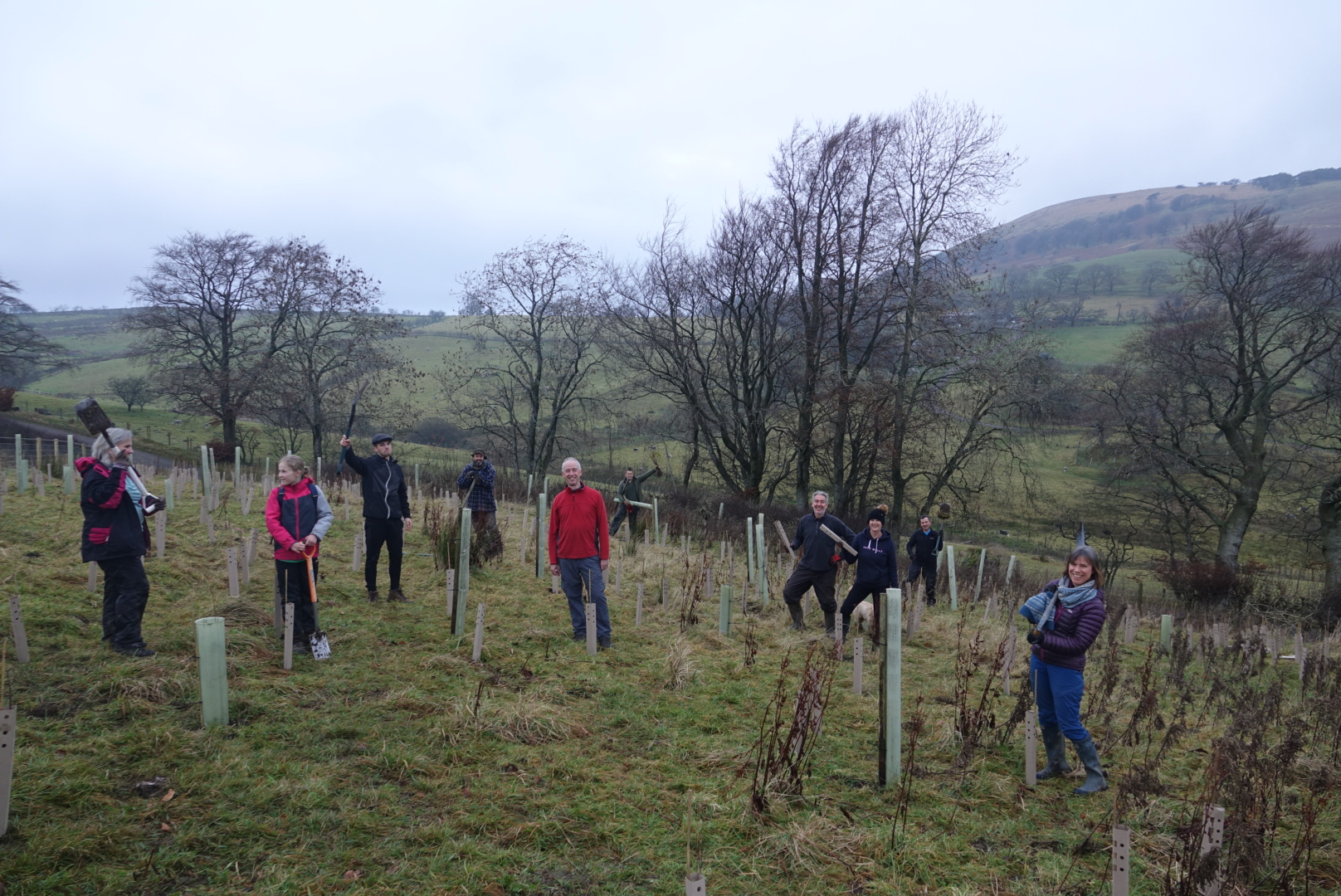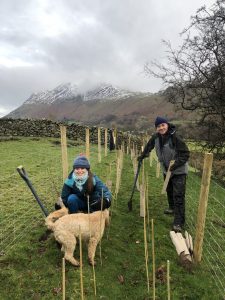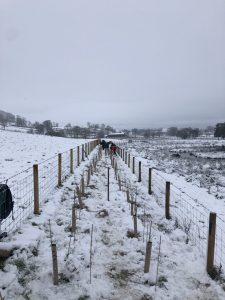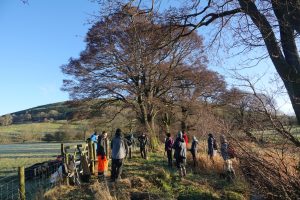



Through sun, snow and rain, in partnership with The Tree Council and Ullswater Catchment Management CIC, Another Way has planted 6000 native trees in Matterdale valley and Patterdale in The Lake District UNESCO World Heritage Site.
Another Way’s planting includes four farmland sites, three in the Matterdale valley and another in Patterdale and is part of a larger project to restore hedgerows throughout the area. A mix of species including oak, rowan, blackthorn, hawthorn, hazel, dog rose, bird cherry and crab apple are being safely planted by some 70 local volunteers with social distancing in place. The saplings are being protected by biodegradable and recycled tree guards.
The Another Way projects are part of more than 80,000 trees that will be planted by March 2021 thanks to a £1 million fund announced by Network Rail last year. The Tree Council is providing expert advice and guidance to community groups to design, plan and plant those projects supported by the Network Rail fund.
18-year old Amy Bray, founder of Another Way, commented: “Trees and hedgerows are central to the functioning of ecosystems. People often talk about the loss of international rainforests without realising that this process happened hundreds of years ago in the UK too. The whole of the world is facing a climate and biodiversity crisis and this can sometimes seem overwhelming but planting trees is something we can all do to deliver immediate benefit. Forests are critical not just in carbon capture for combatting climate change but also in promoting and supporting the range of biodiversity that our planet needs in order to remain healthy, in improving soil quality, reducing flooding and even improving our own mental and physical wellbeing. It is collective community efforts like these that will really make visible change to help fix our future.
“We are extremely grateful for the support from The Tree Council, Ullswater Catchment Management CIC and all of our wonderful volunteers, landowners and farmers for this second year of planting projects from Another Way. We are hoping to work on some more projects later in this year’s planting season which runs from November to March. Lots of time for many more thousands of trees to be planted and for everyone to get involved,” Amy continued.
National Tree Week is the UK’s largest annual tree celebration, marking the start of the winter tree planting season. The Tree Council, one of the UK’s leading charities for trees, first established National Tree Week in March 1975 in response to the national replanting required after the outbreak of Dutch Elm disease.
Sara Lom, chief executive, The Tree Council said: “This year has brought home to us just how important trees are to our health and wellbeing and that of our planet. Trees look after us and we need to look after them. We are very proud to support Amy and Another Way again this year. Their tree planting projects are connecting vital wildlife habitats, boosting local biodiversity and getting local communities engaged and inspired by trees. We look forward to seeing and supporting what the Another Way team does next!”
Again this year, the Another Way tree planting projects are supporting Ullswater Catchment Management CIC which has developed a plan to plant more trees, create more woodland pasture and to maintain or improve the traditional nature-rich farmland habitats and micro-habitats, like hedges and hay meadows.
Commenting, Danny Teasdale, Director of Ullswater Catchment Management CIC said: “We prove that by working with multiple partners we can successfully combine conservation and natural flood management into the farming business. Amy’s projects have helped to support the work we are doing to do this.”
Via a grant from The Tree Council’s Community Grants Scheme, supported by Network Rail, the trees for this Another Way project were purchased from Thorpe Trees of York and the equipment for planting was kindly donated last year, and being re-used this, by Cubby Construction of Carlisle.
Volunteers were all organised by Another Way to work in recognition of Covid-19 constraints with each household bubble planting dedicated areas.
